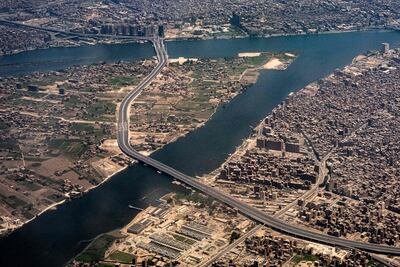Egyptian authorities on Friday released more than 30 people who had been held in custody without trial, the latest batch of political detainees to be freed in recent months.
The latest releases — 31 men and two women — were announced by Tareq El Khouly, a pro-government legislator and a member of a presidential commission that is reviewing the files of political detainees held without trial.
Families of some of those released on Friday posted photos online of the former detainees outside prison gates.
Hundreds of political detainees have been freed since President Abdel Fattah El Sisi called in April for a national dialogue to review key policies. The move was widely seen to be a major, though carefully calculated, move towards allowing a higher degree of freedom in the country.
Mr El Sisi has said the move had been put off by the serious security challenges that faced the country, a reference to a campaign of terror by militants that rocked the country after Islamist president Mohammed Morsi was removed by the army in 2013 amid mass protests against his divisive, one-year rule.
Morsi's removal was followed by a crackdown on members of the now-banned Muslim Brotherhood, from which he hailed, as well as secular activists involved in the 2011 uprising that forced autocratic ruler Hosni Mubarak to step down.
Rights groups claim that thousands, mostly Brotherhood supporters, remain in detention. Authorities say there are no political detainees in Egypt and people that are detained are accorded due legal rights and are treated well.
The national dialogue is expected to review political, economic and social policies before making recommendations to the president, who will then decide which ones his government will adopt.

Authorities have meanwhile been showing a level of tolerance for criticism of government policies not seen since Mr El Sisi, a retired army general, took office in 2014.
In recent weeks, a flurry of articles criticising the government’s handling of the economy surfaced on social media. Independent economists have also been invited to late-night talk shows to offer advice to the government on how to handle the economy, battered by the fallout from the Russia-Ukraine war and the coronavirus before it.
Several dissidents who had lived abroad for years have also recently returned home and are expected to take part in the national dialogue, which is still in the preparatory stage.
The Egyptian leader has made the economy a top priority and has been the driving force behind efforts to overhaul it after years of turmoil.
His reforms since 2016 have won lavish praise from donors and international financial agencies but hit the middle class and poor hard when the cost of food, fuel and utilities soared.

However, he and senior members of his government have tenaciously argued that the reforms enabled the economy to weather the devastating impact of the coronavirus pandemic and would also help the country pull through the current crisis.
Mr El Sisi, however, was visibly angry on Thursday when he defended his economic policies in televised comments.
He said he could not entertain the counsel of people who, according to him, did not know what nation-building is about.
The president also defended his government’s mega infrastructure projects — including the building of more than a dozen new cities — saying they were needed to enable the country’s economy to perform better and be more competitive.
On Friday, he appealed to Egyptians again not to pay heed to “sinister views and deliberate distortions” of efforts made by the government to strike a balance between the reduction of car pollution and the smooth flow of traffic in Cairo, a presidential statement said.
Speaking at the end of a tour of major road projects south and east of Cairo, he rebuffed widespread criticism, mostly on social media, that his government was sacrificing antiquities sites and historical tombs in Cairo to make way for new roads and overpasses.
“We improve the quality of streets and use all available surfaces while protecting historical sites through creative solutions like overpasses that don’t require the demolition of the sites or damaging them,” Mr El Sisi said.


